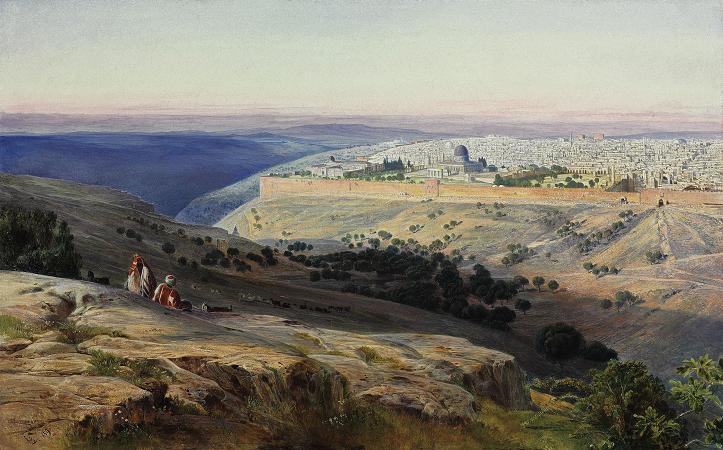Edward Lear (1812 - 1888). Edward Lear was an English artist, illustrator, musician, author and poet, now known mostly for his literary nonsense in poetry and prose and especially his limericks, a form he popularised. His principal areas of work as an artist were threefold: as a draughtsman employed to illustrate birds and animals; making coloured drawings during his journeys, which he reworked later, sometimes as plates for his travel books; as a illustrator of Alfred, Lord Tennyson's poems. As an author, he is known principally for his popular nonsense collections of poems, songs, short stories, botanical drawings, recipes, and alphabets. He also composed and published twelve musical settings of Tennyson's poetry. Lear was born into a middle-class family at Holloway, North London, the penultimate of 21 children of Ann Clark Skerrett and Jeremiah Lear, a stockbroker formerly working for the family sugar refining business. He was raised by his eldest sister, also named Ann, 21 years his senior. Jeremiah Lear ended up defaulting to the London Stock Exchange in the economic upheaval following the Napoleonic Wars; owing to the family's now more limited finances, Lear and his sister were required to leave the family home, Bowmans Lodge, and live together when he was aged four. Ann doted on Edward and continued to act as a mother for him until her death, when he was almost 50 years of age. Lear suffered from lifelong health afflictions. From the age of six he suffered frequent grand mal epileptic seizures, and bronchitis, asthma, and during later life, partial blindness. Lear experienced his first seizure at a fair near Highgate with his father. The event scared and embarrassed him. Lear felt lifelong guilt and shame for his epileptic condition. His adult diaries indicate that he always sensed the onset of a seizure in time to remove himself from public view. When Lear was about seven years old he began to show signs of depression, possibly due to the instability of his childhood. He suffered from periods of severe melancholia which he referred to as the Morbids. Lear was already drawing for bread and cheese by the time he was aged 16 and soon developed into a serious ornithological draughtsman employed by the Zoological Society and then from 1832 to 1836 by the Earl of Derby, who kept a private menagerie at his estate, Knowsley Hall. He was the first major bird artist to draw birds from real live birds, instead of skins. Lear's first publication, published when he was 19 years old, was Illustrations of the Family of Psittacidae, or Parrots in 1830. One of the greatest ornithological artists of his era, he taught Elizabeth Gould whilst also contributing to John Gould's works and was compared by some to the naturalist John James Audubon. His eyesight deteriorated too much to work with such precision on the fine drawings and etchings of plates used in lithography, thus he turned to landscape painting and travel. Among other travels, he visited Greece and Egypt during 1848-49, and toured India during 1873-75, including a brief detour to Ceylon. While travelling he produced large quantities of coloured wash drawings in a distinctive style, which he converted later in his studio into oil and watercolour paintings, as well as prints for his books. His landscape style often shows views with strong sunlight, with intense contrasts of colour. Between 1878 and 1883 Lear spent his summers on Monte Generoso, a mountain on the border between the Swiss canton of Ticino and the Italian region of Lombardy. His oil painting The Plains of Lombardy from Monte Generoso is in the Ashmolean Museum in Oxford. Throughout his life, he continued to paint seriously. He had a lifelong ambition to illustrate Tennyson's poems; near the end of his life, a volume with a small number of illustrations was published. In 1842 Lear began a journey into the Italian peninsula, travelling through the Lazio, Rome, Abruzzo, Molise, Apulia, Basilicata, Calabria, and Sicily. In personal notes, together with drawings, Lear gathered his impressions on the Italian way of life, folk traditions, and the beauty of the ancient monuments. Of particular interest to Lear was the Abruzzo, which he visited in 1843, through the Marsica and the plateau of Cinque Miglia, by an old sheep track of the shepherds. Lear drew a sketch of the medieval village of Albe with Mount Sirente, and described the medieval village of Celano, with the castle of Piccolomini dominating the vast plain of Lago Fucino, which was drained a few years later to promote agricultural development. At Castel di Sangro, Lear described the winter stillness of the mountains and the beautiful basilica. Lear primarily played the piano, but he also played the accordion, flute, and guitar.
more...













